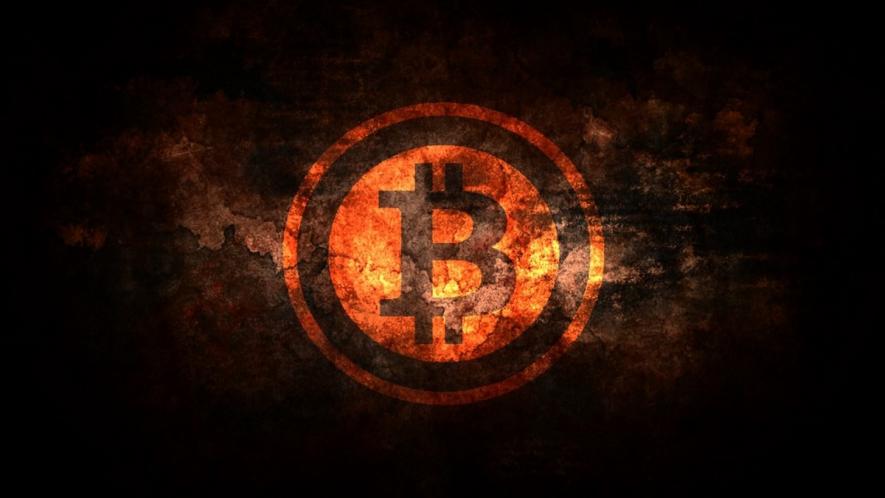Does Bitcoin Pose a Threat to the Global and National Economies?

The price of Bitcoin is now zooming up to the stratosphere, making it either a huge speculative bubble or its acceptance as a real currency. Nobody seems to understand this sudden doubling of the price of Bitcoin. Within a scant three months, the price of Bitcoin has gone over $10,000 for a Bitcoin, from $4,341 at the beginning of the quarter, a jump of 120% in just three months. Wall Street strategist Bob Doll says that while he thinks that it is investor speculation, it is still an amazing run.
Bitcoin is not just digital or electronic money – there are various other forms of electronic money, including various “wallets” that are now available with online service companies like Alibaba, Flipkart, Ola, etc.. What makes Bitcoin different, is that it is not backed up by any currency that is guaranteed by a government or a central bank as money. It is created, transacted and verified, all using computational and cryptographic techniques in a completely distributed way. The computers or nodes in the Bitcoin system perform these operations and once agreed by the majority of nodes in the Bitcoin system, are recognised and recorded as valid transactions. Underlying the Bitcoin architecture, is blockchain, perhaps the most overhyped technology today. Bitcoin, therefore, brings together a number of incomprehensible issues – cryptography, mathematics, computers, and finally the most mysterious of all, money!
Bitcoin is not the only cryptocurrency in circulation. Etherium is another popular one. And there are more cryptocurrencies in use than just these two.
In 2008, Nakamoto, the creator of Bitcoin, wrote a paper where he detailed how a currency could be created and maintained without a central authority. This money would not be backed by fiat money created by the sovereign nations, but would depend on computational power and a distributed set of computers, which would independently verify all transactions. These computers or nodes would also keep a record of these transactions in what can be called a public ledger. Each node of the system would then have a copy of this ledger, and all ledgers would have all the transactions involved, making it nearly impossible to fraud the system. Nakamoto then proceeded to create the first set of 50 Bitcoins, known as the Genesis block, which were signed with his personal key.
The cryptographic part of Bitcoin is quite simple – everybody who either buys/sells in Bitcoin technology, or creates Bitcoins – needs a personal key, a string of numbers known to only the person. The private key pairs with a public key in the public domain, which can then be used to de-encrypt whatever is encrypted by the paired private key. The Genesis block, as well as a set of other initial blocks, are known to have been created by Nakamoto and are associated with his keys. Nakamoto walked away from the Bitcoin community in 2011, handing the running of the Bitcoin system over to others. Later on, an Australian Craig Wright stepped up to claim that he was Nakamoto, a claim that has been disputed by others.
That brings us to the important point in the cryptocurrency world. Such currencies – or the stash of crypto money -- is associated with a key, and not a person. Without the key, there is no access to the money. No government can seize it, and if you lose your key, you also lose your access to the money. It will sit there for all eternity, with nobody who can do any transaction with that money. Effectively, your key is your pseudonym, and in the Bitcoin world, is you.
How can a system of money, such as Bitcoin, be completely de-centralised and not underwritten by a legal system? Or a central authority? Bitcoin does it by having a system of nodes which participate in verifying the transactions and thereby earning some Bitcoins in the process. Fundamentally, Bitcoin maintains a ledger of all transactions in a chain of blocks, therefore the name of the technology as blockchain. Each block contains a set of Bitcoin transactions, and the blocks are chained in a time sequence. You cannot register two transactions with the same set of Bitcoins, as the verification would show you no longer own them. For each block of transactions to be recognised and added to the system, all the nodes simultaneously work on “recognising” this block by embedding the transactions in a computational problem, and then solving it. Once one node finds the answer, it is transmitted to all the other nodes, who can verify that it indeed is the correct answer. Once a majority of nodes have accepted the answer, this block is added by all the nodes in the system. The node originating the solution, gets a set of Bitcoins for solving the problem.
The beauty of the blockchain system is that while the answer is easy to verify, the creation of the answer is both computationally intensive, and has a chance element built into it. The race does not go to the fastest, though you are not even in the race, without having powerful machines that today, are configured just for solving the Bitcoin blockchain problem. The process of creating new Bitcoins, by adding new blocks of transactions, is called mining in Bitcoin terminology. As machines get more powerful, the difficulty level is raised, so that approximately 12.5 Bitcoins are added every 10 minutes. The number of Bitcoins in the system is also limited, as new Bitcoins awarded to miners for adding blocks, is going down. The final number of Bitcoins that can be created by this method cannot exceed 21 million, a number that is expected to be reached by the year 2140. So far, around 16.7 million bitcoins have been released into the system.
The heart of the system is the parallel set of ledgers – a distributed public ledger – that cannot be defrauded unless the people either have access to enormous computing power, or connive with each other. It does not mean it cannot happen, but only that it is unlikely to happen. As more and more nodes get added to the system, such possibilities diminish. The key element in the blockchain system is that it is built without a central authority – a bank, a PayPal or a financial institution – which verifies the transactions. It is the distributed ledgers that record each and every transaction and collectively decides that it is a valid one.
Bitcoins today are being bought and sold, and also used in various transactions by merchants. Will it continue to grow or will it collapse, as it threatened to do at one point, being branded as a failed experiment? In its short lifetime, Bitcoin has gone up and down like a yo-yo. If producing them computationally was supposed to make the currency stable, that has not happened: it moves up or down like any commodity and is subject to speculative influences like any real-world goods or currencies.
However, Bitcoin has shown that it is possible to have a system without any central authority, and still maintain a record of who owns what and that transactions being done are valid ones. It is not completely foolproof, but then no system is. It certainly is very robust against fraud. The problem with a Bitcoin-like system that creates money without the backing of a sovereign nation is an even further loss of economic control by countries, who have already lost a significant part of their control over their economies. It removes even the ability of nation states to control the money supply, the one instrument they still have today.
All Bitcoins in the world put together at their current market value are worth about 170 billion dollars. Compare this to the US which has 1.4 trillion dollars in circulation as currency. The question today is, whether a set of global giants can get together, and bypass the nation-states by backing some form of cryptocurrency? Can they use blockchain type solutions to reduce the role of the state even further, not only for currencies but also other areas?
IMF and the World Economic Forum have devoted a fair amount of material over blockchain. Most observers regard bitcoin as a speculative tech bubble than a real one. Yes, blockchain is a useful technology, but not the applications that require such distributed solutions. The threat of such technologies is more in the larger longterm assault that earlier finance capital and now digital monopolies have mounted on the nation-state. It is to reduce the role of the state and hand it over to big capital in the name of distributed solutions outside state control. Along with attack on public utilities and the commons, it is also an attack on the distributive role of the state and even simple things like taxing the rich to benefit the poor.
Finally, if nation states do not want to accept cryptocurrencies, they have a simple solution. They can simply ban it by an international agreement and that will be the end of any such cryptocurrency. What is important here is not how robust the algorithms underlying Bitcoin are, but the political terrain of control of the global and national economies. It is not computers but people who need to decide this issue.
This is a revised version of the original article. The original version can be read here.
Get the latest reports & analysis with people's perspective on Protests, movements & deep analytical videos, discussions of the current affairs in your Telegram app. Subscribe to NewsClick's Telegram channel & get Real-Time updates on stories, as they get published on our website.
























